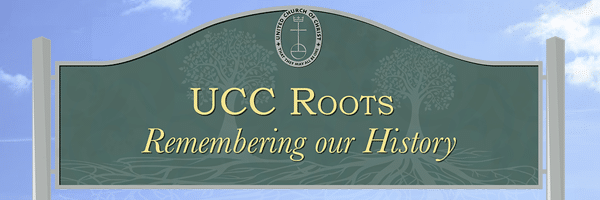Deaconesses: Pioneer Professional Women
 In March of 1889 a remarkable meeting was held at St. Peter’s Evangelical Church in St. Louis. Seventy people (60 men and 10 women) gathered to charter the Evangelischer Diakonessen-Verein von St. Louis, MO (Evangelical Deaconess Society of St. Louis, MO). It was unusual to involve women in such gatherings. In that era women seldom had voice, much less vote. Yet, when the Society established its “board of directors” it chose 4 ministers (including clergy in other denominations) 4 laymen and 4 “ladies.”
In March of 1889 a remarkable meeting was held at St. Peter’s Evangelical Church in St. Louis. Seventy people (60 men and 10 women) gathered to charter the Evangelischer Diakonessen-Verein von St. Louis, MO (Evangelical Deaconess Society of St. Louis, MO). It was unusual to involve women in such gatherings. In that era women seldom had voice, much less vote. Yet, when the Society established its “board of directors” it chose 4 ministers (including clergy in other denominations) 4 laymen and 4 “ladies.”
The Deaconess movement began in Germany to nurse the sick and care for the poor and aged. Deaconess societies also established homes where women could be educated and trained as nurses.
Katherine Haack (1840-1919), the widow of an Evangelical pastor, was at that meeting. She and her adopted daughter had completed a course in nursing and became the first women consecrated by the Society.
Within eight years a 3-story building was built to house 40 patients and support 20 trained nurses. The sisters lived in community. They were single or widowed, but unlike Catholic nuns they were free to leave to get married or care for family.
Katherine Haack was initially the “Sister Superior.” As the enterprise grew, however, some members of the Board felt that an ordained pastor should head the organization. Katherine was demoted and eventually resigned, along with six other sisters.
Yet, the need was real. Women continued to join the sisterhood. By 1914, there were 144 deaconesses, and after thirty years Society records show that over 30,000 patients had received care –“irrespective of creed or nationality.” Eventually opportunities for female church educators and pastors expanded and in the 1950s Deaconess recruitment ended. Deaconesses had claimed new roles for women, pursuing meaningful careers free from family responsibilities and childbearing. In a relative sense, the Deaconess was a liberated woman—“a pioneer professional woman within the protective circle of the church.”
Contributor: Nancy Nollau Mack
Related News
Bodily Autonomy Means Every-BODY
Advocacy and Action for Women's and Gender Justice Local events stir thoughts and...
Read MoreAn ally experiences PRIDE in the CLE
Advocacy and Action for Women's and Gender Justice Local events stir thoughts and...
Read MoreUCC Releases Menstrual Health Toolkit
Advocacy and Action for Menstrual Health and Justice Work with partners Church World Service...
Read More
